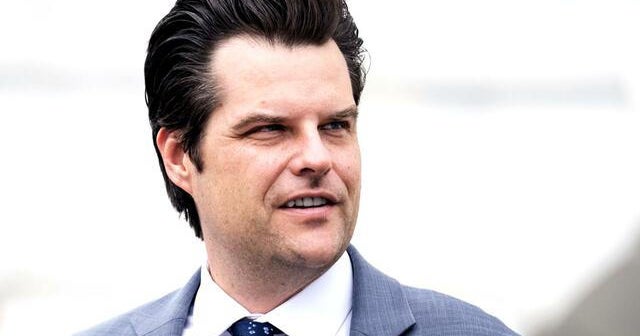CBS News
How many CD accounts should I have? What experts say

Getty Images
It’s no secret that current returns on certificates of deposit (CDs) are impressive. Some competitive CDs pay 5% or higher APYs on your savings. But, if you’ve researched opening one, you may have decided that just one isn’t the right number for you.
CDs come with a wide range of terms. There are short-term options like those that require a 6-month or 1-year commitment. Then, there are long-term options with terms like 2-years, 3-years, 5-years and even longer. And, you may need to open several CD accounts if you practice a strategy like laddering. We asked several experts for their thoughts on the right amount of CDs to open. Below, we’ll break down what they said to consider now.
See how much you could earn with a top CD here now.
How many CD accounts should I have? What experts say
With so many different CDs available, and various investing strategies to choose from, it’s often difficult to determine how many accounts you should open. “At the risk of sounding too predictable, the answer is, it depends,” says Nick Covyeau, owner and financial planner at Swell Financial, a financial planning firm. Here’s what to account for:
Consider what you have the money earmarked for
“Let’s assume for a second that we have what we need in savings and nothing more,” says John Mason, CFP, President of the financial planning firm, Mason & Associates. “And, let’s say that’s $50,000.” Mason suggests splitting that $50,000 into two accounts, but investing in only one CD. “I’m a fan of $25,000 in savings and $25,000 in a CD.”
But, if you’re saving for a planned expense over the next one to three years, Mason says multiple CDs may be fitting. “Let’s say I need to keep an extra $200,000 in cash for whatever reason. In that instance, I will typically break those up into at least two CDs.” He says doing so “gives you the flexibility that if you have to break one CD for whatever reason, you’re not breaking all of your CDs.”
Use CDs to achieve your financial goals today.
Think about safety
One reason to save with a CD is because they’re typically safe savings vehicles. But, that safety dwindles when you deposit too much into one account. “Federally insured banks and credit unions only [usually] insure up to $250,000 per depositor at each bank or credit union,” explains Jim White, CFP, president at the financial planning firm, Great Oak Wealth Management.
And, it’s important to consider your balances in all accounts at each financial institution. “If you have multiple accounts, such as checking, savings, etc., add all of those accounts up,” says White. “Any amount above $2250,000 will be at risk for loss if there is an issue with the bank or credit union.”
But, you can alleviate this risk by having multiple CDs. “You can easily overcome this risk by opening accounts at multiple financial institutions,” explains White.
Your CD strategy
Your strategy should also be considered when choosing how many CDs you’ll open. For example, if you follow a CD ladder strategy, it will involve the use of several CDs.
“I personally prefer owning more than one CD and implementing what is called a ‘ladder’ strategy,'” says Covyeau. “This involves purchasing several CDs with staggered maturities to take advantage and lock in higher interest rates both today and in the future.”
Other considerations
Some of the experts we spoke with say that if you’re focusing on the number of CD accounts you should have, you’re focusing on the wrong thing. “The number of accounts is not important,” argues Noah Damsky, CFA, principal at the financial planning firm, Marina Wealth Advisors. “There’s no right number of CD accounts like there’s no right number of checking, savings or brokerage accounts. What is most important is structuring the CD so that you have the right amount invested and for the right amount of time,” says Damsky.
Start earning more with CDs now.
The bottom line
There’s no standardized number of CDs that’s perfect for everyone. When you choose how many CDs you should open, consider what you’re saving money for, insurance limits and your savings strategy. And, some experts say you shouldn’t focus on the number of CDs you open. Instead, they say you should think about your savings goals and ensure your CD investments will help you achieve them. Compare today’s leading CDs now.
CBS News
Manhattan DA says he’s against dismissing Trump’s “hush money” conviction

Watch CBS News
Be the first to know
Get browser notifications for breaking news, live events, and exclusive reporting.
CBS News
Nov 19: CBS News 24/7, 1pm ET

Watch CBS News
Be the first to know
Get browser notifications for breaking news, live events, and exclusive reporting.
CBS News
Why home equity loans are better than refinancing right now

Getty Images
Homeowners looking to access a large sum of money in today’s economic climate don’t have to look too far to find it. By turning to their accumulated home equity, owners can potentially finance a major expense (or multiple major expenses) simply by using the money they already have via their home’s value.
While there are multiple ways to do this, many may be considering a traditional mortgage refinance or cash-out refinance. But in today’s unique and constantly changing interest rate climate, that could prove to be a costly mistake. Instead, right now, both home equity loans and home equity lines of credit (HELOCs) are arguably better than refinancing. Below, we’ll explain why.
Start by seeing what home equity loan interest rate you could qualify for here.
Why home equity loans are better than refinancing right now
Here are three reasons why a home equity loan may be more beneficial than a refinance now:
You’ll maintain your existing mortgage rate
The average home equity loan interest rate is 8.41% as of November 19, 2024, but the average mortgage refinance rate for a 30-year loan is 6.93%. So, on the surface, it appears that refinancing is cheaper. But that refinance rate will require you to exchange your current mortgage rate to get the new one.
That could be a costly mistake if you have a rate under 6.93%, as millions of Americans do right now. By applying for a home equity loan, however, you’ll still gain access to your equity, but you won’t need to bump your mortgage rate to get it. And if home equity loan rates drop in the future, as they have for most of 2024, you can simply refinance your loan to the better rate then.
Get started with a home equity loan online today.
You may qualify for a tax deduction
When you use a cash-out refinance, you apply for a loan larger than what you currently owe to your lender. You then use the former to pay off the latter and keep the difference as cash for yourself. Interest paid on mortgage loans is tax-deductible, but so is the interest on home equity loans if used for qualifying purposes. At that higher interest rate, you may qualify for a larger deduction (while still maintaining your current lower mortgage rate).
The average home equity amount is high right now
A combination of low mortgage interest rates during the pandemic, a drop in available inventory and a hesitation to sell now that rates are high again (amid other complex but interrelated factors) has caused the average home equity amount to soar to just under $330,000 right now. If you want to access that with a refinance, as noted, you’ll need to give up your current mortgage rate to do so. And if you want to access it via a credit card or personal loan, the restrictions will be significant. It makes sense, then, to take advantage by using a home equity loan or HELOC instead of taking a gamble with a refinance right now.
The bottom line
With mortgage refinance rates elevated, the unique feature of a potential tax deduction tied to home equity borrowing and a six-figure average equity sum available now, for many homeowners in need of financing it makes sense to skip a refinance for a home equity loan now. That said, this type of financing is tied to your most important financial asset so the decision to withdraw it from it should be carefully weighed against the risks. Consider speaking to a financial advisor or home equity lender who can answer any questions you may have before getting started.
Speak to a home equity loan lender now.




